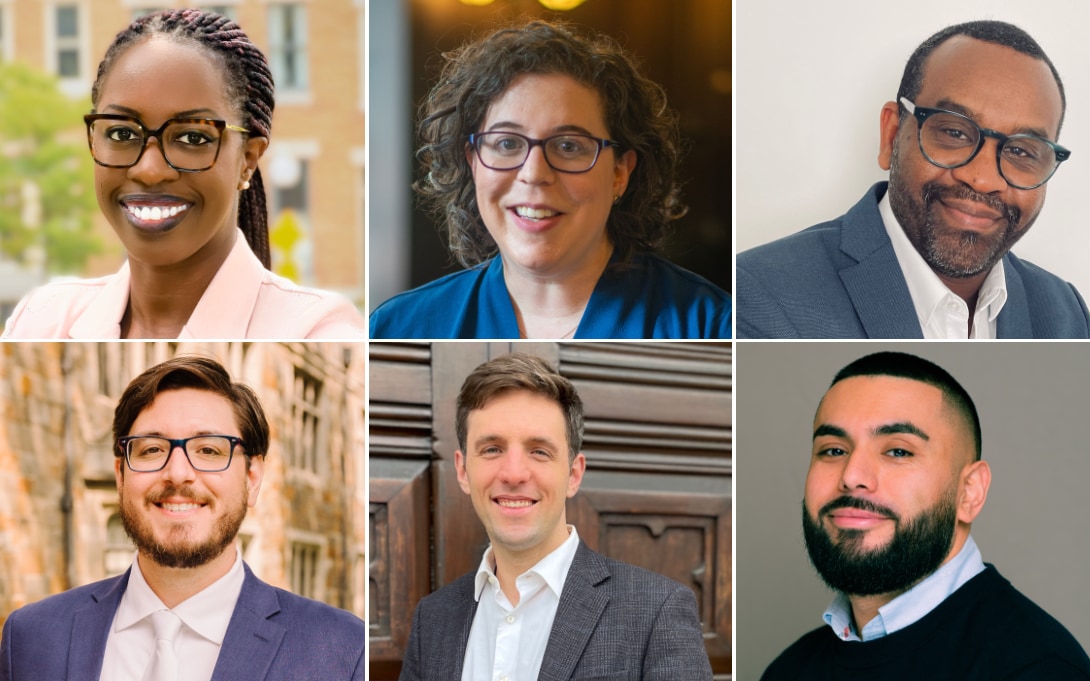
A former foreign minister to Mali, a leading educational economist, a former NYC mayor, and a tech entrepreneur who explores indigenous technoscience are among the outstanding new faculty that add depth to the Ford School and connect student education, rigorous academic research, and real-world policy impact. They will add outstanding new or revamped courses to the Ford School’s winter 2024 schedule.
Former Minister of Mali Kamissa Camara brings 15 years of experience with socio-political and security issues in Sub-Saharan Africa to her new course, PubPol 475/750.006: U.S. Foreign Policy in Africa. Camara is a Senior Africa Advisor at the United States Institute of Peace and a Non-Resident Scholar at the Middle East Institute. Drawing on her experiences and vast network, this course will feature current case studies and guest speakers such as seasoned diplomats, policy experts, and strategic policymakers from both the U.S. and African spheres. These contributors will offer distinctive insights into the formulation and execution of foreign policy. Read some of her recent discourse from PBS Newshour, NBC News, CNN, and more.
Leading educational economist Sarah Cohodes uses quantitative causal inference methods to evaluate policies and programs and is known for her influential research on charter schools. She will teach Pubpol 744: Economics of the Public Sector. By examining major issues in economic policy, students will better understand the reasons for government intervention in the economy, the extent of that intervention, and the ways in which people will likely respond given economic policy.
Former NYC mayor Bill de Blasio joins the Ford School as a Towsley Foundation Policymaker in Residence. He will be teaching “When Policy Met Politics: How Real Change Is Made.” Read more about him here.
Center for Racial Justice pre-doctoral fellow Kristina Fullerton Rico studies migration, transnationalism, aging, gender, family, and race and ethnicity. Her research focuses on the social and emotional impacts of U.S. immigration policies that lead unauthorized immigrants and their families to endure long-term separation. Fullerton Rico will teach PubPol 677: Immigration Policy. Read a Q&A with Fullerton Rico.
Former tech entrepreneur and software engineer Yousif Hassan will teach a new course, PubPol 475/750.008: Race, Technology, and Public Policy. Hassan’s work examines the social, economic, and political implications of emerging technologies including artificial intelligence (AI) and data focusing on the relationship between race, digital technology, and technoscientific capitalism. His most recent project investigates the development of AI and its innovation ecosystem across multiple African countries focusing on data governance and the sociotechnical knowledge production practices of the state, scientists, and the tech industry. Read more about Hassan.
Economist Justin Holz explores how racial discrimination affects the consequences of minimum wage policies, inequity in property taxes, debt amnesties in developing countries, and the causes and consequences of police misconduct. He teaches PubPol 774 Data Analysis Practicum and PubPol 775: Experimental Field Methods.
Political scientist Devin Judge-Lord focuses on how public pressure campaigns affect agency rulemaking, especially those concerning climate and environmental justice issues. He also researches legislator behavior and capacity, the role of money in politics, lobbying, and private governance. He has built a large dataset on nearly all of the policies made by U.S. federal agencies in the past 20 years and all of the millions of public comments on these policies. Judge-Lord will teach PubPol 475.011 Topics: Climate Change and PubPol 510.002: The Politics of Public Policy. Read a Q&A with Judge-Lord.
Sociologist Mo Torres (MPP ‘15) examines the political economy, urban politics, and race-class inequality. His current book project looks at the politics of urban austerity in Michigan cities experiencing fiscal crisis. His new course, PubPol 475/750,001: Race, Place, and Inequality, focuses on how racial inequality is embedded in place, and which policies contribute to or alleviate inequality. Read a Q&A with Torres.